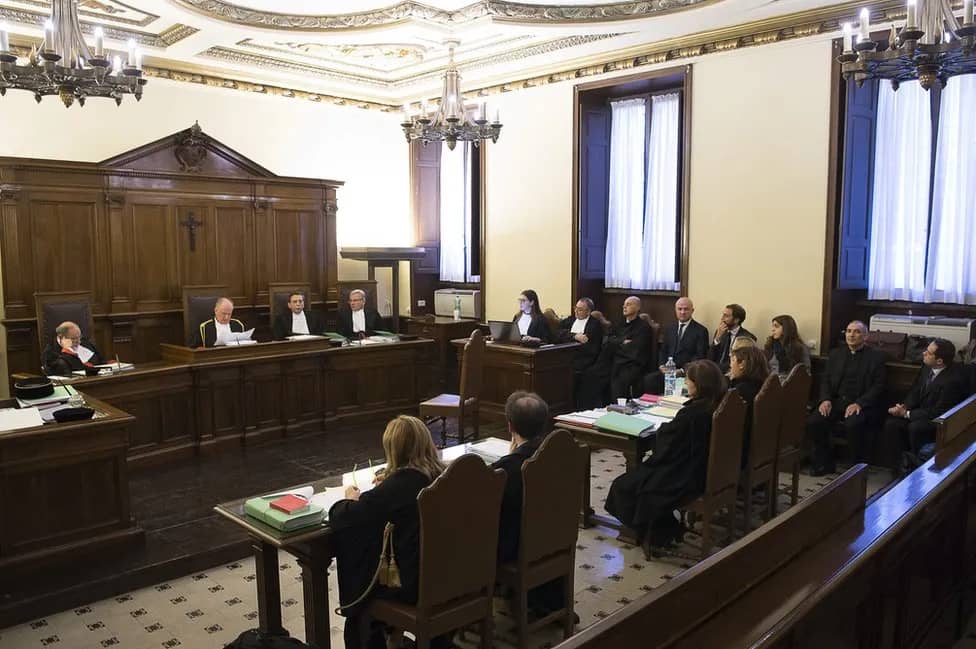Complaining in Pope Francis’s room is not allowed, at least according to a sign now hanging on his door at the Domus Santa Marta, the residence on Vatican grounds where he’s lived since the beginning of his pontificate.
“Complaining Not Allowed” (in Italian, Vietato Lamentarsi), reads the sign, which was recently spotted on the pope’s door by long-time Italian Vatican watcher Andrea Tornielli. In much smaller print, a red warning on the sign defines this as the first law in the protection of one’s health and well-being.
The sign also warns transgressors, saying that they’re subject to developing a “victim complex” with the subsequent “diminution of their sense of humor and ability to solve problems.”
Complaining in the presence of children, the sign warns, would lead to a double sanction.
The recent addition to Pope Francis’s door closes on a more upbeat note, advising readers that “to become the best of yourself, you have to concentrate on your own potential and not on your limits, therefore: Stop complaining, and act to make your life better.”
The sign was produced by Italian psychologist and psychotherapist Salvo Noé, who gave it to the pontiff after a June 14 weekly audience. Noé specializes in psychology in work environments, and gives well-being lectures to universities, security forces and companies.
According to Tornielli, who got the picture and background from “an old priest who was with the pope earlier this week,” Francis promised to put it up on his office door, but seeing it would look out of place in the Apostolic Palace, he decided instead to put it in the Santa Marta.
Though Room 201 is considered the pope’s private quarters, he’s often welcomed people there, mostly long-time friends who are not part of his public agenda.
Francis has spoken about the dangers of excessive complaining many times, including early on in his pontificate when he said that Christians who complain too much or are melancholic, “have more in common with pickled peppers than the joy of having a beautiful life.”
A year later, during one of his daily morning Masses, in Santa Marta, the Argentine pope warned against exaggerating difficulties compared to those undergoing major tragedies when praying.
“Our life is too easy, our complaints are over-dramatized,” the pontiff said at the time.
“Faced with the complaints of so many people, of so many brothers and sisters who are in the dark, who have lost all memory, almost lost all hope – who are experiencing this exile from themselves, who are exiled, even from themselves, (our complaints are) nothing!”
















